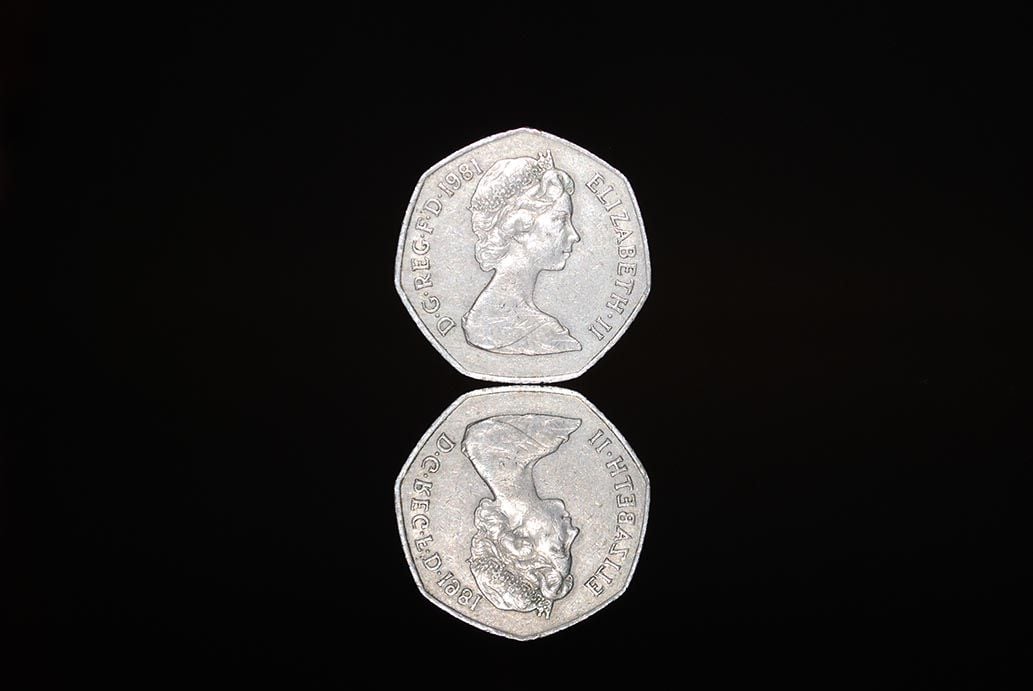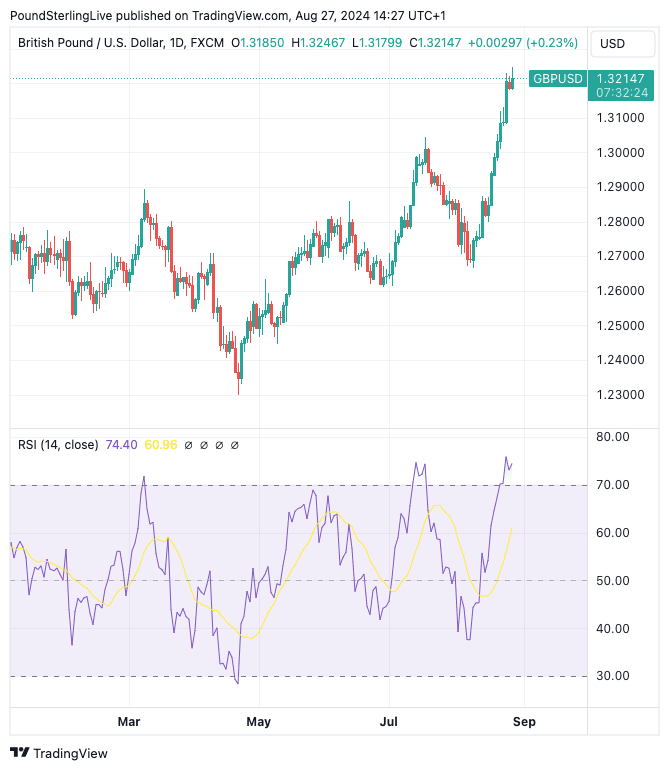
Image © Adobe Images
Pound Sterling has recorded a new two-year high against the Dollar amidst a rejuvenated global equity market rally with one market professional saying any weakness will only invite more buying interest.
The Pound to Dollar exchange rate hit 1.3246 on Tuesday as European equity markets outperformed and traders continued to play the divergent monetary policy theme between the U.S. and UK.
U.S. equity markets look set to start the day lower, but German and UK markets are rallying and are up by nearly half a per cent each, suggesting demand for European assets that is helping the Pound.
"For all my doubts, GBP continues to trade like a rock star as we take out the 1.3145 triple top with ease over Powell," says a note from JP Morgan's currency dealing desk.
The Pound shot higher against the Dollar on Friday after Powell showed clear intent to cut interest rates in September, with markets proving surprised at how committed he was to the move. Previously the Fed insisted it would move cautiously on rate cuts, but Powell's speech appeared to be a 'brakes off' moment.
Indeed, the market saw decent odds that the Fed would launch the cutting cycle with a chunky 50 basis point hike, which was still seen as an unlikely scenario heading into his speech.
The result is USD selloff that extends on Tuesday and takes GBP/USD to a new 2024 high at 1.3230.
Above: GBP/USD remains notably overbought as per the RSI in the lower panel.
"Not really much on the topside in terms of levels besides a minor pivot zone at 1.3275/00, struggle to get meaningfully reinvested in GBP here buy admit dips back towards the 1.3145 pivot should be bought in the coming sessions," says the JP Morgan Note.
Also underpinning Sterling is Bank of England Governor Andrew Bailey's Friday speech in which he said it was too soon to say the fight against inflation was won, suggesting the Bank won't be in a rush to cut rates again.
"Bailey seems relatively relaxed about inflation and we have had the first decline in BRC in almost three years, but softening prices are being treated as a boon for the currency," says JP Morgan.
The British Retail Consortium (BRC) said its measure of shop price changes revealed prices fell 0.3% in August, down from +0.2% in July. This is below the three-month average rate of 0.0%, and shop price annual growth has remained at its lowest rate since October 2021.
Inflation has been falling since 2023, but this means the pace of increase has merely been slowing. Outright price declines offer relief for shoppers as the absolute level of goods caused by a period of extraordinary inflation can start to come down and bolster purchasing power.
"Shop prices fell into deflation for the first time in nearly three years," says Helen Dickinson, Chief Executive of the BRC. "This was driven by non-food deflation, with retailers discounting heavily to shift their summer stock, particularly for fashion and household goods."

